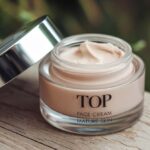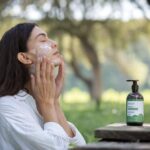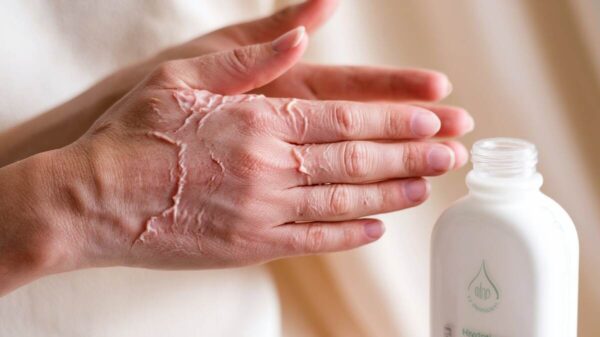Sensitive skin is a condition that influences millions, often causing discomfort, irritation, and frustration. If you’ve ever experienced redness, stinging, or itching after applying skincare products, you may be dealing with sensitive skin. This guide is designed to help you recognize the common symptoms of sensitive skin, understand potential causes, and explore methods to manage and address your skin concerns. By raising awareness of brands like Vanicream, Cetaphil, Avène, and Skinfix, we’ll help you become more informed about the options available for protecting and nourishing your sensitive skin.
Common Symptoms of Sensitive Skin
Sensitive skin is defined by heightened reactivity to environmental or topical factors. While symptoms vary, some key indicators signal that your skin might be more susceptible to irritation. Common symptoms include:
- Redness and Flushing: This is one of the most immediate signs of sensitivity. Redness, often accompanied by warmth, can appear after exposure to certain skincare products, weather changes, or even after consuming certain foods.
- Itching and Tightness: Sensitive skin often feels tight, especially after cleansing. Itching can be a sign that the skin’s natural barrier is compromised, allowing irritants to penetrate more easily.
- Dry Patches and Flakiness: Dry, flaky areas are typical in sensitive skin, especially around the cheeks and nose. These patches may worsen with certain products or environmental exposure.
- Burning and Stinging Sensations: Sensitive skin may react to certain products, including those with fragrances, alcohol, or active ingredients, causing a stinging or burning sensation upon application.
- Breakouts or Rashes: Sensitive skin can often break out or develop rashes, especially if exposed to harsh ingredients. Unlike acne, these breakouts are more about inflammation than clogged pores.
Understanding the Causes of Sensitive Skin
Sensitive skin can have multiple causes, and understanding them is essential for effective management. Here are some of the primary triggers:
- Genetics: Some individuals are genetically predisposed to sensitive skin. If your family has a history of eczema, rosacea, or other skin conditions, you may be more susceptible.
- Environmental Factors: External factors like pollution, weather changes, and UV radiation can aggravate sensitive skin. High-pollution areas can lead to increased redness and sensitivity, while cold weather may cause dryness and flakiness.
- Overuse of Skincare Products: Using too many products or applying them too frequently can disrupt the skin’s natural barrier. Products with harsh chemicals, fragrances, and alcohol can strip the skin’s natural oils, leading to heightened sensitivity.
- Medical Conditions: Conditions such as eczema, psoriasis, and rosacea often contribute to sensitive skin. These conditions require special care and targeted treatments to alleviate symptoms effectively.
- Diet and Lifestyle Choices: Foods high in sugar, dairy, and processed ingredients can worsen skin sensitivity. Stress and lack of sleep also influence skin health, contributing to more reactive skin.
Diagnosis Techniques for Sensitive Skin
If you suspect you have sensitive skin, turn to a dermatologist who can provide a tailored diagnosis. Here are a few standard diagnostic methods:
- Patch Testing: Dermatologists often use patch testing to recognize specific allergens that may be causing skin reactions. This involves placing small amounts of potential allergens on the skin to monitor any adverse reaction.
- Observation of Triggers: Self-monitoring is another technique. Noting any responses after applying certain products, environmental exposure, or dietary changes can help pinpoint specific triggers.
- Barrier Function Tests: This involves measuring the skin’s moisture retention capabilities and water loss. Sensitive skin often has a compromised barrier, which can be quantified through these tests.
- Microscopic Examination: In some cases, dermatologists may take a small skin sample to inspect under a microscope, helping them understand the skin structure and detect underlying issues such as inflammation or other cellular abnormalities.
Popular Brands Supporting Sensitive Skin
When it comes to sensitive skin, picking the right brands is essential for comfort and well-being. While sensitive skin requires gentle and non-irritating ingredients, some brands stand out in this regard:
- Vanicream: Known for its simple, gentle formulas, Vanicream products are free from dyes, fragrances, lanolin, and parabens, making them ideal for sensitive skin.
- Cetaphil: A dermatologist-recommended brand, Cetaphil offers a variety of products specifically formulated for sensitive skin. Their gentle cleansers and moisturizers are widely used for their non-irritating properties.
- Avène: Originating from France, Avène incorporates thermal spring water in its products, which are renowned for their soothing properties. Their products are popular among individuals with sensitive skin prone to conditions like rosacea & eczema.
- Skinfix: Skinfix offers products designed to support the skin’s natural barrier, helping to strengthen and protect sensitive skin against environmental stressors.
How to Navigate Next Steps for Sensitive Skin Care
Understanding the nuances of sensitive skin is just the first step. As you learn about the symptoms, causes, and brands that cater to your needs, it’s essential to dig deeper into specific solutions and products that offer targeted care. In the next part of this series, we’ll explore effective products that support sensitive skin and how they can help you manage your unique skincare concerns.
Ready to take the next step?
Explore our guide to “Best Face Products for Sensitive Skin: Solutions & Benefits” and discover options explicitly designed to soothe, protect, and nourish sensitive skin.

















